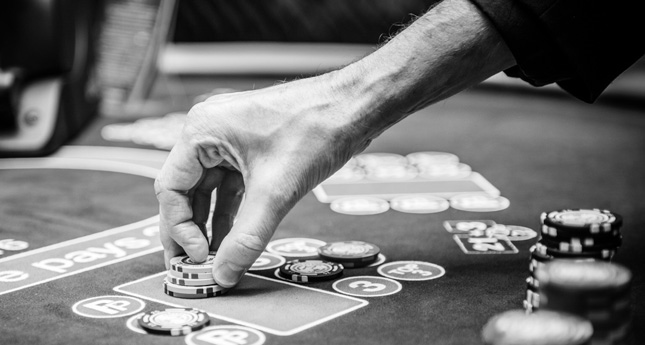

Gambling Can Actually Be Good For You: The overlooked benefits for the controlled and disciplined when it comes to calculated game of chance.
Gambling is bad for you, right? Everybody knows that. It’s one of those hard-wired facts. You know smoking is bad for you, you know drinking is bad for you, and you know gambling is bad for you. Except that it might actually not be. In fact, it could actually bring benefits with it. And we’re not just talking the possibility of a win.
There’s very little positive coverage of gambling in the press. They’re more than happy to publish stories about gambling epidemics, or the dangers of addictions, but you never hear the success stories. On the care occasions that you do, they’re generally stories about big lottery wins rather than someone who had a great night at the casino. Despite that, there’s some evidence that the occasional gamble might actually be good for your brain. Just like having the occasional glass of wine doesn’t mean you’re going to become an alcoholic, visiting online casinos every now and then doesn’t mean you’re about to develop a gambling problem, especially when you play cute and cuddly slot games like Fluffy Favourites.
Gambling has been with us since the days of Ancient Rome, where citizens were encouraged to play dice once a year during the festival of Saturnalia. The ancient Scandinavians were even more fond of it; their myths and legends state that dice and runes were given to humanity by Odin, who’s the God of all Gods in their folklore. If even the Gods of Ragnarok were fond of a little gamble now and then, and the habit has persisted with us for all of the centuries since, I think it’s fair to say that it can’t all be bad as a habit.

How Gambling Can Help Your Brain Stay Young
Here’s the basic science. The older we get, the more our brain deteriorates. Much like our joints, skin and bones, the brain is made of living tissue that weakens as it ages. It gets even worse after retirement, because we stop using entire parts of our brain at all, leaving them to effectively atrophy. That’s why seniors are encouraged to take up jigsaws, crosswords and other activities to keep the brain agile and younger for longer. But you don’t have to start when you’re old. Keeping the brain active during your younger life should mean it doesn’t weaken as quickly when you’re older.
The human brain is, for obvious reasons, a popular subject for scientific study. An endless number of those studies have demonstrated that people who have hobbies, or keep themselves active, retain both memory and function for longer than people who don’t. Simply put, those who do nothing to keep the brain working are far more likely to lose their full use of it as a result. Doing things that require detailed thinking, or full focus, keep your brain ticking over. Just like going to the gym keeps your body strong, a mental workout does the same for your mind.
So How Does Gambling Come Into It?
Gambling isn’t purely based around pressing buttons or turning cards over and hoping for the best. Gambling games are often based around strategy as much as they are luck, and it’s the calculation of these strategies that keeps the brain active. Studies have shown that many people are able to play games like poker well into their twilight years without showing any sign of deterioration or loss of skill. There’s also the added bonus that when you’re gambling with or against other people, it’s also a social activity. Social activities keep the brain stimulated, too.
It’s not just poker, of course. Other card games work just as well. Blackjack is a good example. It’s impossible to be good at blackjack without having a good short term memory. Where have the cards gone? Who’s holding what? What are the chances of the next card making you bust, or pushing you towards a win? As well as thinking about what’s in your hand, you’re also trying to work out the dealer’s chances. There are a lot of odds at work and possibilities in play, and working them all out taxes the mind. That’s the one form of tax that’s always good to play.
Nor is the effect limited to card games, either. Basically, any gambling game you play that requires more than just blind luck can help strengthen and secure the parts of your brain that you’ll rely on in later life. Even working out your own risk and reward strategy is part of the process. So long as you’re betting sensibly and not bankrupting yourself, gambling can actually be a fun and healthy activity that keeps you smart and sociable.

Are We Saying That Gambling Cures Senility?
No, of course not. We’re just saying it’s one of the things that can actually be a help rather than a hindrance. Gambling is an industry that seems to receive purely negative press, and when facts and research come out that show there could be a benefit to the occasional flutter, it only seems right that we pass that information on and make you aware of the possibility.
On the grand scale of past-times, gambling games of skill and judgment sit on a fine line somewhere between chess – a game of pure intellect – and betting on the toss of a coin – which is a game of pure chance. We’re not saying that it’s going to keep you as sharp as a chess grandmaster, but it’s certainly more of a productive use of your time than flipping coins.
Gambling will not, on its own, miraculously hold back the aging process. Nor should anybody spend their entire day gambling unless they’re a professional. But it’s probably something most people don’t consider when they’re thinking about a ‘healthy mind’ routine. It might be a more fun option than that fifth crossword of the day, or that sixth word-search. So consider it on your list of activities for positive recreation. Don’t stop anything you already do to keep yourself healthy, just be aware that there might just be one extra option for you out there. And who knows? You might even win a little money doing it! But but but at the end of the day you must always stay in control and set a budget and if you do feel that you have an addiction then there are sites such as begambleaware.org that can help.






